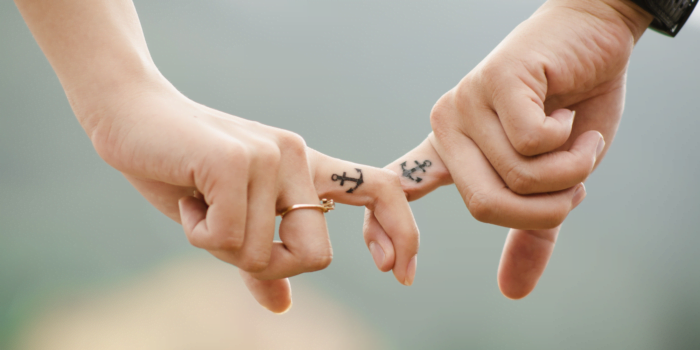Introduction
The ability to manage relationships is critical for success, both in personal life and in business. Establishing and maintaining strong relationships requires strong relationship management skills, and one of the key elements of effective relationship management is setting clear boundaries. Boundary setting is essential for ensuring healthy and lasting relationships with others.

Boundaries are an important aspect of defining and maintaining a healthy balance in relationships. They serve as a clear delineation of what is acceptable and what is not within a relationship, helping to protect individuals from emotional harm or exploitation. The lack of boundaries can lead to imbalanced relationships and increase the risk of negative experiences. In short, boundaries play a crucial role in fostering healthy, fulfilling relationships by setting clear expectations and promoting mutual respect.
Psychology plays a role in the study of relationship management and helping individuals improve their relationships. Theories of social and interpersonal psychology are used to understand the dynamics of relationships, including attachment, intimacy, and communication styles. This can provide valuable insights into how relationships grow and change. Additionally, therapy can be an effective way for individuals to work on relationship management and resolve problems in their personal or professional relationships by developing effective relationship skills and working through conflicts with a therapist’s guidance.
Establishing and maintaining healthy boundaries in relationships brings numerous benefits. By effectively setting boundaries, individuals can enhance communication, build trust, cultivate respect, and deepen intimacy in their relationships. To help you set healthy boundaries, here are some guidelines to consider.
Healthy boundaries are crucial for establishing and maintaining positive relationships with others. Here are some guidelines that can help individuals establish and maintain healthy boundaries:
Clarify your needs and boundaries: Before setting boundaries with others, it is important to have a clear understanding of your own needs, values, and what you are comfortable with. This helps individuals to communicate their boundaries effectively and with confidence.
Communicate boundaries: Clearly communicate your boundaries to your partner or others involved in the relationship. This helps to ensure that everyone involved understands what is expected of them and what behavior is not acceptable.

Be firm: Once you have established your boundaries, it is important to be firm and enforce them. This means not compromising your own values or allowing others to cross your boundaries. This can help to build mutual respect and trust within the relationship.
Practice self-care: Self-care is important for maintaining healthy relationships. Take care of yourself by setting aside time for activities that bring you joy and recharge your energy. This will help you to be more confident and assertive when setting and maintaining boundaries.
Seek support: If needed, seek support from friends, family, or a therapist to help you establish and maintain healthy boundaries in your relationships. This can be especially helpful when dealing with difficult situations or relationships.
By following these guidelines, individuals can establish and maintain healthy boundaries in their relationships, leading to stronger, more fulfilling connections with others.
What is Relationship Management?
Relationship management is an essential part of personal and professional success. It involves actively working to build and strengthen positive relationships with others, including individuals, groups, or organizations. This requires strong communication skills, the ability to collaborate and understand others, and the capacity to empathize. Effective relationship management leads to the creation of supportive networks, increased trust, and mutual respect.
The goal of relationship management is to develop mutually beneficial relationships that are built on open communication, shared understanding, and a mutual commitment to satisfaction. These relationships can provide support, help individuals reach their goals, and contribute to overall well-being.
Empathy forms the foundation of healthy relationships and relationship management is the key to maintaining them. This process involves effectively setting and maintaining expectations, establishing trust, and respecting the needs and wants of all parties involved.
Here are five strategies to help create harmonious relationships:
Communication: Open and honest communication is critical in any relationship. Regular check-ins, active listening, and the ability to share thoughts and feelings in a respectful manner are all essential components of effective communication.
Empathy: Empathy involves putting oneself in another’s shoes and understanding their perspective. Showing empathy helps to build trust and fosters understanding, making it a cornerstone of any healthy relationship.
Trust: Trust is the foundation of any strong relationship. Building trust takes time and effort, but can be achieved through consistent behavior, open communication, and keeping promises.
Respect: Showing respect for each other’s opinions, values, and boundaries is critical for a healthy relationship. Respecting each other’s individuality helps to build trust and foster a sense of security.
Flexibility: Relationships can change over time, and being flexible and open to change is important for adapting to these changes. A willingness to compromise, be open to new ideas, and accommodate each other’s needs is essential for a harmonious relationship.
By implementing these strategies, individuals can build strong, healthy relationships that are built on trust, respect, and understanding.
The Role of Boundaries in Healthy Relationship Management
Boundaries play a crucial role in relationship management by defining the limits and expectations within a relationship. They help to create a sense of security, establish mutual respect, and promote healthy communication. Setting and enforcing boundaries allows individuals to protect their own needs and feelings, while also showing respect for the needs and feelings of others. This can include boundaries around personal space, time, and decision-making, as well as boundaries around communication and behavior.
By having clear boundaries in place, individuals can avoid misunderstandings and conflicts, and create a more stable and harmonious relationship. At the same time, it is important to be flexible and open to negotiation when necessary, as boundaries can change over time. Effective relationship management requires the ability to set and maintain healthy boundaries while also being open to change.
Boundaries are an important aspect of relationship management as they provide structure and definition to relationships, and help individuals to understand what they can expect from one another. Clear boundaries promote trust by establishing a sense of security and stability, and by making it clear what is acceptable and what is not within the relationship. This in turn helps to reduce misunderstandings and conflict, as each person knows what to expect from the other.
In addition, clear boundaries also promote open and honest communication, as individuals feel more comfortable sharing their thoughts and feelings when they have a clear understanding of what is acceptable. This type of communication is essential for building a strong and lasting bond, as it allows individuals to understand each other’s perspectives, resolve conflicts, and work together towards shared goals.
Having clear boundaries does not mean that relationships are rigid and unchanging, but rather that they provide a framework for growth and evolution. When boundaries are well-established, individuals are free to explore new possibilities and experiences, secure in the knowledge that they have a solid foundation of trust and mutual understanding. This can lead to deeper levels of intimacy, as well as greater satisfaction and fulfillment in the relationship.
There are many different types of boundary setting that can be beneficial in relationships; some common examples include:
Physical boundaries: This type of boundary involves setting limits around physical touch, privacy, and personal space. Physical boundaries help to ensure that individuals feel comfortable and respected in the relationship.
Emotional boundaries: This type of boundary involves setting limits around the sharing of personal thoughts, feelings, and emotions. Emotional boundaries help individuals feel safe and respected in the relationship, and can prevent emotional over-involvement or burnout.
Time boundaries: This type of boundary involves setting limits around the time and energy invested in the relationship. Time boundaries help individuals balance their commitments and prevent burnout.
Intellectual boundaries: This type of boundary involves setting limits around the sharing of ideas, opinions, and beliefs. Intellectual boundaries help individuals feel respected and valued in the relationship and can prevent intellectual or philosophical disagreements from becoming sources of conflict.
By setting and maintaining clear boundaries, individuals in a relationship can promote trust and communication, two essential components of a lasting and fulfilling bond. Clear boundaries can also help to reduce conflict, prevent burnout, and establish mutual respect and understanding.
How Can Enhancing Mental and Emotional Well-Being Help Overcome Emotional Issues?
Improving mental and emotional well-being is crucial in overcoming emotional issues and improving overall well-being. This can involve a variety of self-care practices that help regulate thoughts and emotions, such as practicing mindfulness and relaxation techniques, engaging in physical activity, and seeking support from trusted friends and family members.
Counseling and therapy can also be incredibly effective in addressing emotional issues. A trained therapist can provide individuals with a safe and supportive environment to explore their feelings, work through traumatic experiences, and learn new coping strategies. This can help individuals develop greater self-awareness, increase their emotional intelligence, and become more confident in their ability to navigate challenging emotional experiences.
In addition, individuals can also enhance their mental and emotional well-being by engaging in activities that promote growth and personal development, such as education and personal hobbies. By prioritizing mental and emotional well-being and seeking support when needed, individuals can become more resilient and better equipped to overcome emotional issues, leading to a greater sense of satisfaction and well-being in all aspects of life.
Conclusion
To summarize, the importance of effective relationship management for mental and emotional wellbeing cannot be overstated. By establishing clear boundaries and fostering open communication, individuals are able to cultivate healthy relationships that promote personal growth, self-awareness, and emotional stability.
With the right tools and support, individuals can gain a greater sense of control over their emotional experiences, and as a result, improve their overall wellbeing. Through relationship management, individuals are able to build stronger connections with those around them, leading to increased feelings of belonging, security, and happiness.






